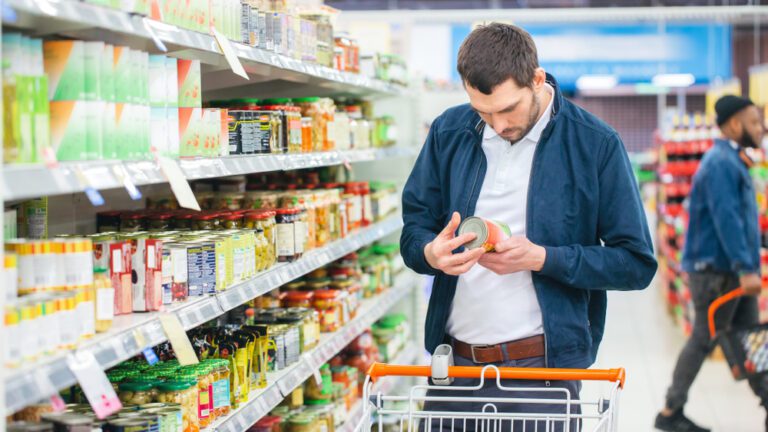
[ad_1]

People don’t all the time make the neatest selections in relation to the stuff we purchase. Time strain can clarify a few of this – we seize the very first thing we see on the shelf with out checking the worth and head to the cashier.
Grocery shops cost manufacturers extra to put gadgets on the common client’s eye top on cabinets because of this. However analysis reveals that even after we aren’t pressed for time, we don’t all the time make the appropriate selections in relation to value factors. Determining why is a query preoccupying many economists, neuroscientists and psychologists.
A current examine, printed within the journal Assessment of Behavioral Economics, has provided a brand new mannequin to rationalize why poor selections are made. This “ratio-difference” principle explains that people generally examine costs and financial savings to one another in relative phrases when they need to be considering in absolute phrases.
Muddled minds
When shoppers have a possibility to avoid wasting $5 on a product priced at $25 and one other alternative to avoid wasting $5 on a product priced at $500, they’ll most certainly make the most of the primary promotion.
They understand the financial savings relative to the full value. Regardless that the primary situation is a 20 p.c saving and the second is a 1 p.c saving, they each quantity to the identical factor in absolute phrases, which is $5. Ideally, shoppers ought to apply absolute considering right here, based on the ratio-difference principle, and due to this fact understand the financial savings as equal.
“Successfully fixing some financial issues requires one to suppose when it comes to variations whereas others require one to suppose when it comes to ratios,” says examine creator Mina Mahmoudi, an economist on the Rensselaer Polytechnic Institute in a press launch. “As a result of each forms of considering are vital, it’s cheap to suppose individuals develop and apply each sorts. Nevertheless, additionally it is cheap to count on that individuals misapply the 2 forms of considering, particularly when much less skilled with the context.”
Extra About Choice-Making:
This new principle builds on previous research and hypotheses. A earlier principle is that we’ve so many selections to make every day that our brains use shortcuts – also called anchoring biases – to assist us make selections quicker.
For instance, in the event you’re used to paying $2 for a loaf of plain, white sandwich bread within the grocery story, you may baulk on the $5 artisan sourdough on sale on the farmers market. That may make sense when evaluating bread with bread, however analysis has lengthy proven that reference factors for one merchandise can find yourself bleeding into our considering for different issues.
A examine printed again in 1974 confirmed how occupied with one determination can have an effect on one other, although variables are unconnected. Researchers requested contributors to spin a wheel that landed on a quantity between zero and 100. The identical examine contributors have been then requested what number of nations there are in Africa.
Contributors who landed the wheel on a excessive quantity have been statistically extra more likely to estimate that there are the next variety of African nations than contributors who landed the wheel on a low quantity. It’s not precisely clear why our brains enable outdoors elements, like spinning a wheel, to distort our considering.
A Crowded Market
Different researchers have proven that people make higher selections when choices are restricted. A neuroscientist at New York College showed this by asking individuals to decide on between a number of sweet bars.
For this instance, everybody’s favourite sweet was a Snickers bar. When researchers offered the selection between a Snickers, Milky Manner or an Almond Pleasure, individuals all the time opted for the Snickers. However when the scientists launched extra alternative, providing 20 totally different sweet bars, together with Snickers, the examine contributors didn’t all the time select Snickers.
Learn extra: In a World of Countless Decisions, Why Is Choice-Making So Tiring?
Furthermore, when the researchers removed all different sweet bars and simply offered contributors with their chosen sweet bar and a Snickers, the contributors couldn’t determine why they didn’t go for the Snickers. Researchers try to determine what causes this sub-par determination making. It could be extra pressing as world economies battle.
[ad_2]